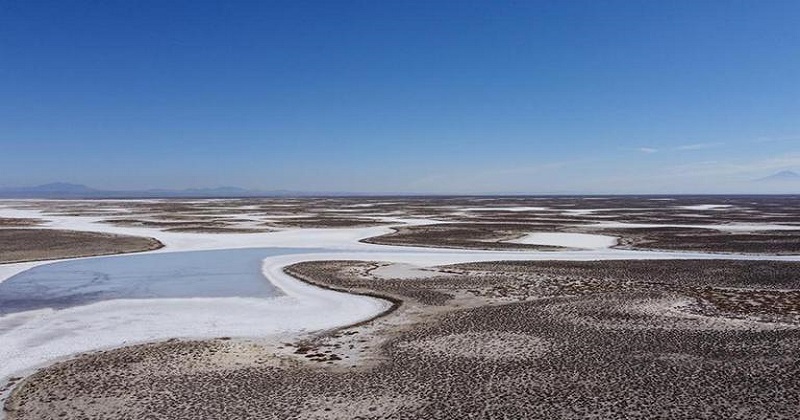
The second largest lake in Turkey, Lake Tuz is a popular tourist destination and home to a variety of bird species.
The waters of the 1,665 square kilometre (643 square mile) body of water have completely receded this year.
Experts claim the lake in central Turkey, as well as others around the country, are victims of a drought brought on by climate change, as well as decades of bad agricultural policies that have depleted the lake’s subterranean waters.
Fahri Tunc, a wildlife photographer and environmental activist, visits Lake Tuz frequently to check on flamingos who migrate and breed there when the weather is mild, typically photographing colonies of the birds grazing on algae in the shallow waters of the lake at sunset. He said that the scenery had transformed this summer. Much of the lakebed has fractured and dried up.
‘The situation is catastrophic compared to 11 years ago. But if you ask, how is it (compared to) 20 years ago? Compared to 20 years ago, Lake Tuz is finished,’ said Tunc, who heads the regional branch of the Turkish environmental group, Doga Dernegi. ‘The water is now gone,’ he added.
A combination of precipitation and inappropriate irrigation techniques has caused several additional lakes in Turkey to dry up or see their waters decrease to dangerous levels. Experts warn that the region’s overuse of groundwater is making it more vulnerable to sinkhole formation. Associated Press journalists noticed one of these depressions beside a newly harvested alfalfa field in Konya’s Karapinar district, among dozens of others.
Also Read: Bombay HC quashes cheating proceedings against Amazon India head
According to Kurnaz, a climate scientist, the situation is not reversible, although it can be halted.
The drought is only one of a slew of natural calamities that have hit Turkey this summer, all of which are thought to be linked to climate change. Wildfires ravaged large swaths of forest area along Turkey’s southern coast in July. Floods hit parts of the country’s northern Black Sea coast, killing 82 people. A layer of sea mucilage coated the Sea of Marmara earlier this year, harming marine life and blamed on rising temperatures and poor waste management. Drought and desertification are particularly dangerous in the Mediterranean basin, which includes Turkey, according to climate experts.

Post Your Comments